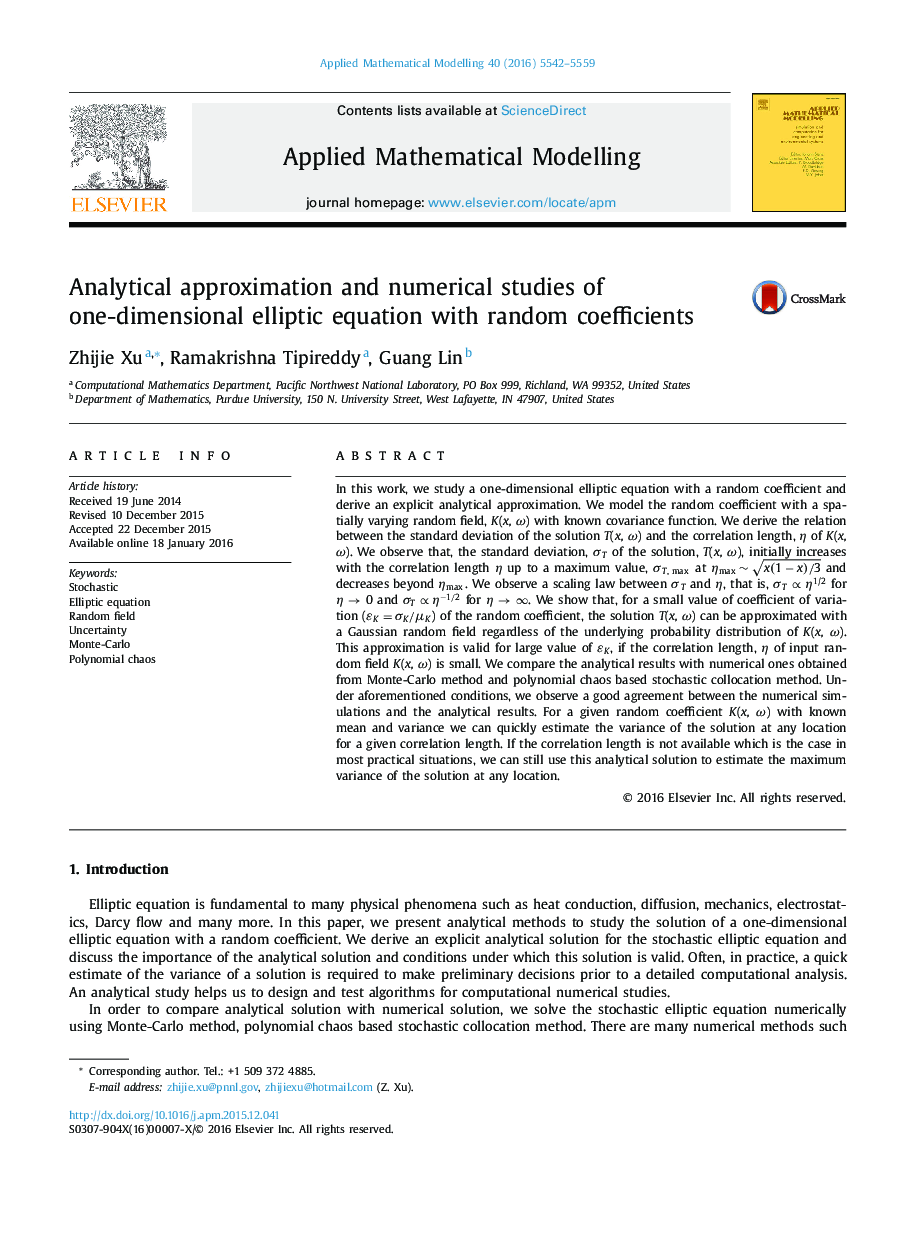| Article ID | Journal | Published Year | Pages | File Type |
|---|---|---|---|---|
| 1702971 | Applied Mathematical Modelling | 2016 | 18 Pages |
Abstract
In this work, we study a one-dimensional elliptic equation with a random coefficient and derive an explicit analytical approximation. We model the random coefficient with a spatially varying random field, K(x, Ï) with known covariance function. We derive the relation between the standard deviation of the solution T(x, Ï) and the correlation length, η of K(x, Ï). We observe that, the standard deviation, ÏT of the solution, T(x, Ï), initially increases with the correlation length η up to a maximum value, ÏT, maxâ at ηmaxâ¼x(1âx)/3 and decreases beyond ηmaxâ. We observe a scaling law between ÏT and η, that is, ÏT â η1/2 for η â 0 and ÏTâηâ1/2 for η â â. We show that, for a small value of coefficient of variation (ÉK=ÏK/μK) of the random coefficient, the solution T(x, Ï) can be approximated with a Gaussian random field regardless of the underlying probability distribution of K(x, Ï). This approximation is valid for large value of εK, if the correlation length, η of input random field K(x, Ï) is small. We compare the analytical results with numerical ones obtained from Monte-Carlo method and polynomial chaos based stochastic collocation method. Under aforementioned conditions, we observe a good agreement between the numerical simulations and the analytical results. For a given random coefficient K(x, Ï) with known mean and variance we can quickly estimate the variance of the solution at any location for a given correlation length. If the correlation length is not available which is the case in most practical situations, we can still use this analytical solution to estimate the maximum variance of the solution at any location.
Related Topics
Physical Sciences and Engineering
Engineering
Computational Mechanics
Authors
Zhijie Xu, Ramakrishna Tipireddy, Guang Lin,
